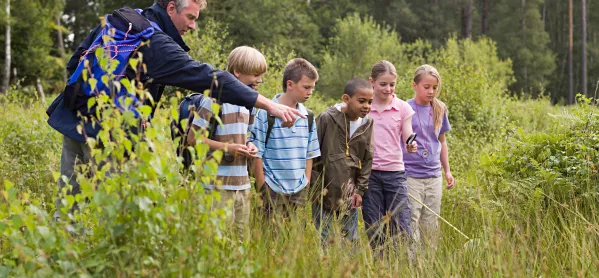
- Home
- It’s obvious: learning outside the classroom works
It’s obvious: learning outside the classroom works

The older I get, the more I resemble Basil Fawlty. I often find myself reading some research and marvelling at how much must have been spent on what that infamous hotelier would have called “the bleedin’ obvious”.
Don’t get me wrong, though: I believe in research! Indeed, sometimes we really need scientific proof of something that we practitioners already understand, both viscerally and from experience, so that we can try to convince influential sceptics in politics or the media.
One such necessary piece was published this week by Gordonstoun School, the Scottish independent school founded by Kurt Hahn and famously committed to valuing what happens outside the classroom as much as what is learnt within.
Simon Beames of the University of Edinburgh led a team or four researchers over some 10 months. Their work included an online survey completed by 1,183 former Gordonstoun students and 235 parents of current students. It also included focus group interviews with 100 students, 50 former students, 30 current parents and 22 staff. In the introduction, Dr Beames makes the powerful statement: “It is undeniable that Gordonstoun’s out-of-classroom experiences feature a powerful mix of novel and demanding challenges that require high levels of resolve in order to overcome.”
Commenting that the research report “is located within a body of outdoor education literature that is remarkably thin on investigations into its long-term influences”, Dr Beames notes that “an astonishing 94 per cent of respondents claimed that out-of-classroom learning experiences had an overwhelmingly positive influence in their personal growth”.
Well (as Mandy Rice-Davies once said), they would say that, wouldn’t they? But it’s true. The challenge for ethnographic research is to gain enough personal views from a cross-section of stakeholders to form a reliable, consistent picture: this research undoubtedly did so. It would have been nice if the researchers had been able to link this strong perception of personal growth and character development gained from out-of-classroom learning to hard-edged exam results or even career advantages and salaries earned. But that would have been beyond the scope of a single-school study.
Nonetheless, the correspondents were in no doubt of the impact on their later lives. As one commented, “You come out of it thinking, ‘I just managed to get through that - I think I can get through other stuff’.” Most powerful for me was a former student who remembered being appointed the school’s head of service: “I was suddenly in charge of this whole system and it was great confidence-building…because I was given responsibility that I didn’t expect.”
Learning leadership
The research may be recent, but the ideas are far from new. Kurt Hahn built it into the very fabric of Gordonstoun: he also founded Outward Bound. The same philosophy drives the Duke of Edinburgh’s Award, now 62 years old.
Charles Rigby, founder nearly 30 years ago of the expeditions and leadership-training organisation World Challenge, has always sought the same goal. He frequently reminds me that getting children outside into different, unfamiliar and challenging situations allows them to develop leadership skills. When a group is cold, wet and lost in the hills, the youngster who adopts the leadership role at a vital moment is the one who raises spirits by cracking a joke.
The best schools have always seen it as part of their role to afford myriad opportunities for children to develop resilience and character. Some recent education secretaries have got (briefly) excited about character education - sometimes called grit. Sadly, when both funding and time are in short supply, priority invariably goes to the things the government values more: stuff it can easily measure through data analysis and inspection.
Gordonstoun’s research is all about soft skills, but those vital personal qualities are largely unmeasurable in terms of impact. We know it happens, as this research shows. But we can’t demonstrate its effect with figures on a spreadsheet.
That’s a pity because when policymakers value only what is easily measured (as they have for decades), they overlook what is really important: the personal growth of the next generation of adults.
What makes it all the sadder is the fact that it’s so bleedin’ obvious.
Dr Bernard Trafford is a writer, educationalist and musician. He is a former headteacher of the Royal Grammar School, Newcastle, and past chair of HMC. He is currently interim headteacher of the Purcell School in Hertfordshire. He tweets @bernardtrafford
Register with Tes and you can read five free articles every month, plus you'll have access to our range of award-winning newsletters.
Keep reading for just £4.90 per month
You've reached your limit of free articles this month. Subscribe for £4.90 per month for three months and get:
- Unlimited access to all Tes magazine content
- Exclusive subscriber-only stories
- Award-winning email newsletters
You've reached your limit of free articles this month. Subscribe for £4.90 per month for three months and get:
- Unlimited access to all Tes magazine content
- Exclusive subscriber-only stories
- Award-winning email newsletters



